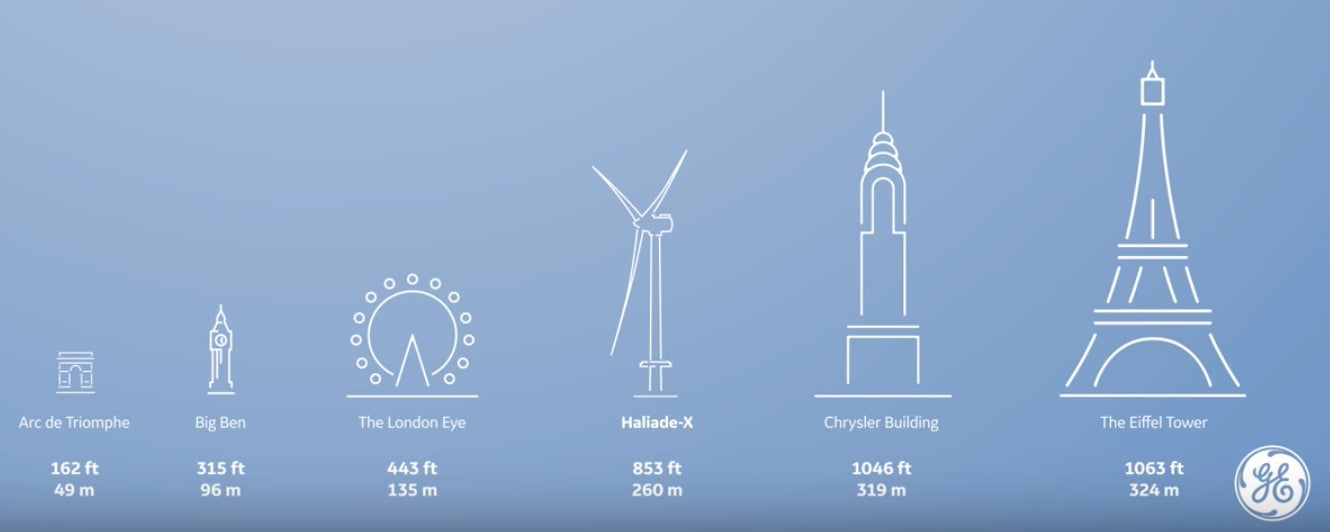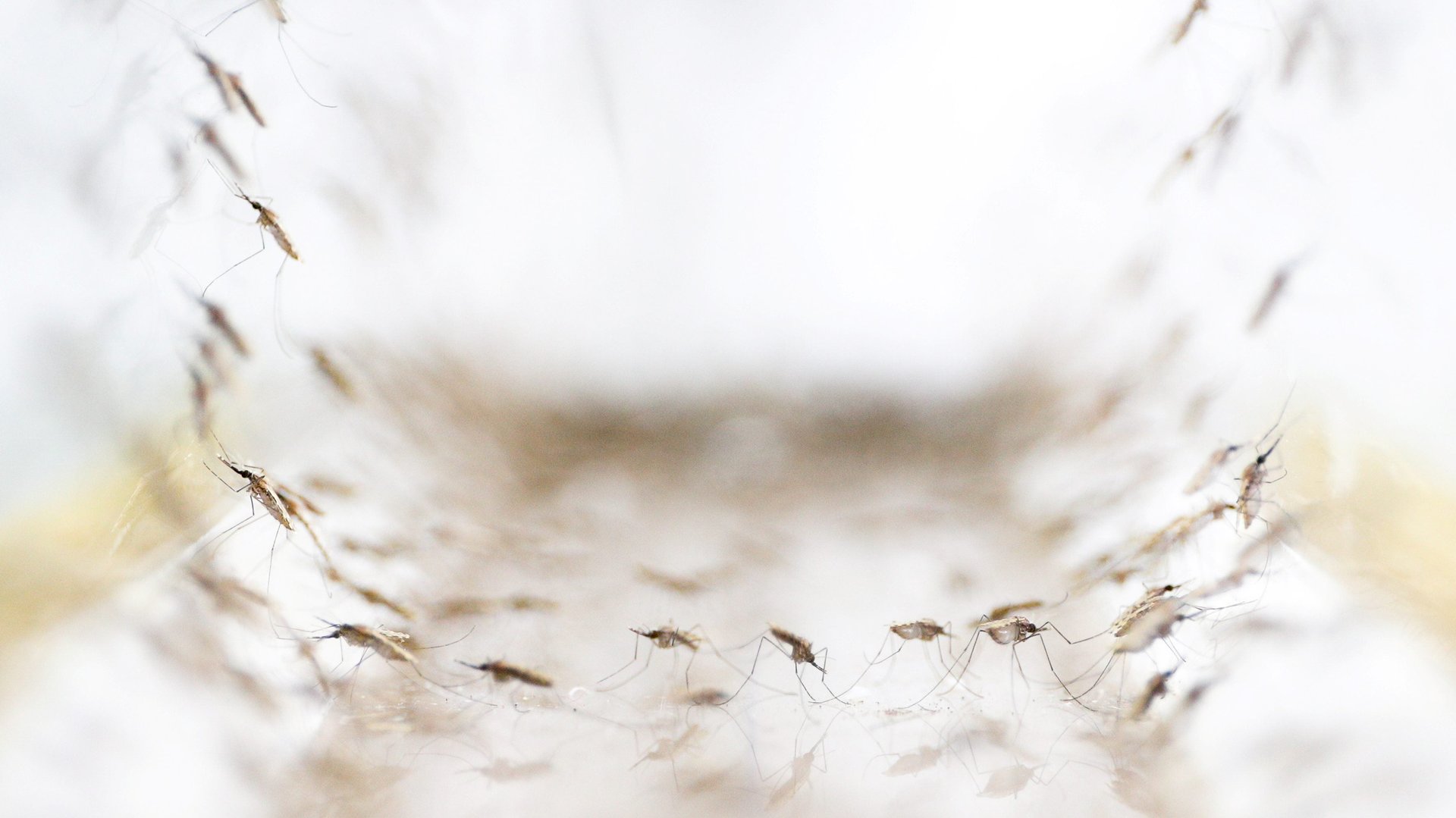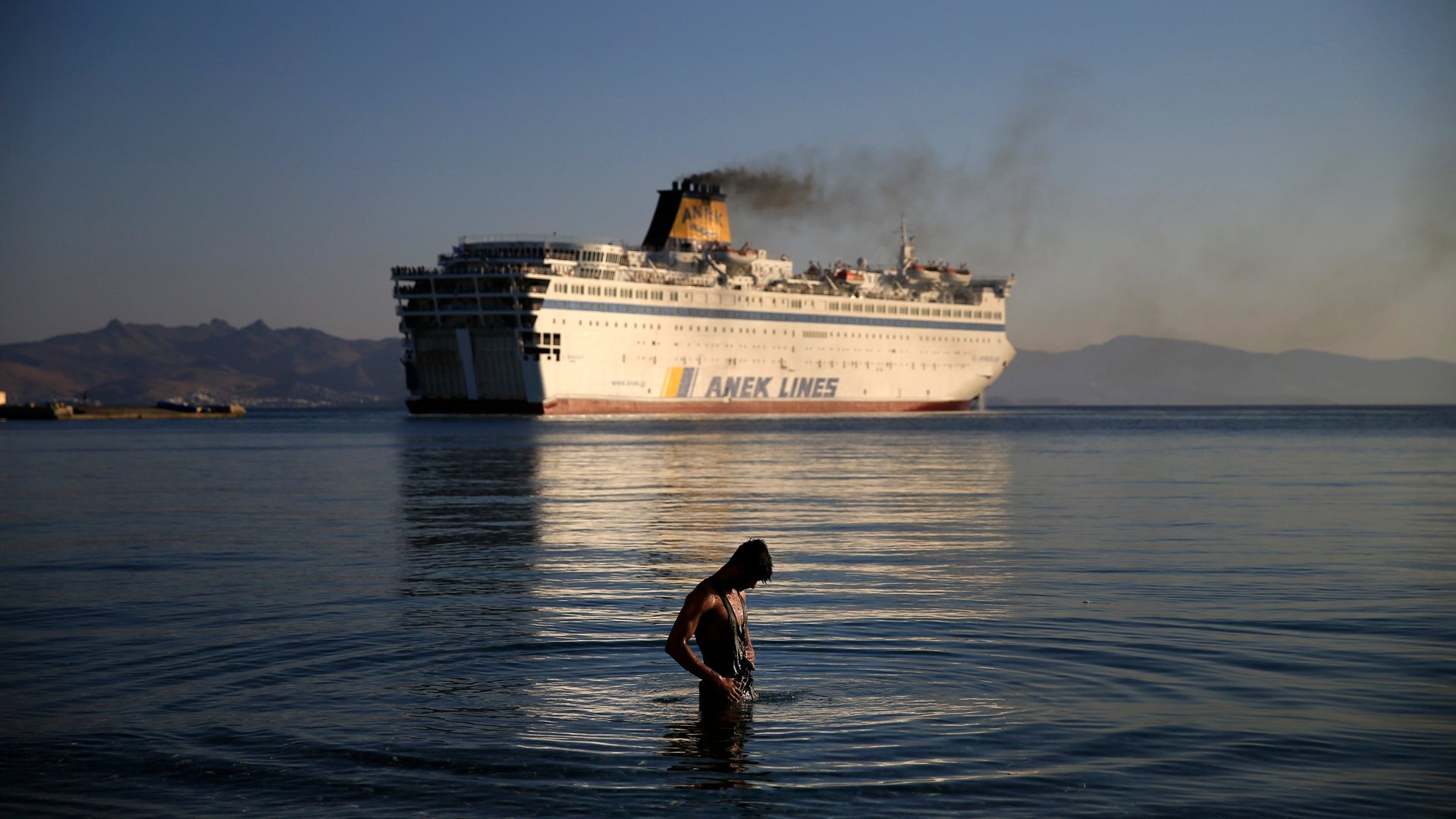The Race to Zero Emissions: offshore FTW, creeping mosquitos, cheating ships
If you’d like to hear how I put this newsletter together each week, come join the Future Stories Lab in London on Oct. 8 evening. RSVP here.

If you’d like to hear how I put this newsletter together each week, come join the Future Stories Lab in London on Oct. 8 evening. RSVP here.
Here’s what happened over the past week that helped or harmed the world’s chances of cutting greenhouse-gas emissions to zero.

🔽 Decreases emissions
1️⃣ GE will build the world’s largest offshore wind turbines in the UK. The Haliade X will be 260 meters—creeping on to the Shard or the Eiffel Tower—and it can generate 12 MW of peak power.
2️⃣ Europe’s largest greenhouse-gas emitter, the German power company RWE has announced that it will be carbon neutral by 2040, and reduce emissions by 70% by 2030. It joins two other US utilities in setting a net-zero emissions goal.
3️⃣ The UK might bring forward its deadline to ban the sale of petrol and diesel cars to 2035, instead of 2040. Related: The UK is piloting the conversion of some of its 7.5 million lamp posts into electric-car chargers, at a cost of about £1,000 ($1,200) each. Also, you can now buy used electric cars in the country for as little as £7,000 ($8,400).
4️⃣ The US state of Pennsylvania is joining the Regional Greenhouse Gas Initiative, a regional carbon market. It will be the biggest greenhouse-gas emitter in the RGGI and aims to use the multi-state market to hit ambitious climate goals.
5️⃣ The UK will soon stop using coal to produce electricity. How it got there could provide lessons for many others (paywall).
The future of war 💥
Climate change is a “threat multiplier,” according to the Pentagon, and its impacts are a “direct threat” to national security. The US military is also the world’s single-largest consumer of fossil fuels and produces some 44 million metric tons of CO2 emissions annually. Given those two facts, parts of the US defense forces are going green—slowly. For example, simply switching to LED bulbs cut its fuel use by 25,000 gallons. Read more in Quartz’s field guide on the future of war and members can join a conference call later this week.

Net-zero (for now)
1️⃣ West Nile Virus, a mosquito-borne disease vector, has been found in Germany for the first time. As the climate warms, scientists expect mosquitos to carry more such diseases further north.
2️⃣ Extinction Rebellion has launched another round of civil disobedience actions around the world. In the lead up, the UK police raided the organization’s office and new arrests have already been reported in Australia.
3️⃣ Desmond Tutu, an anti-apartheid activist, says “Climate change is the apartheid of our times. Boycotts, sanctions and divestment proved effective in South Africa, but that required a mindset shift.”
4️⃣ The UK’s National Theatre will end its partnership with Shell and the Royal Shakespeare Company will end its BP sponsorship deal, after pressure from artists to disassociate from fossil-fuel companies.
The race problem ✊🏼
The environmental movement has a historical problem of not being representative enough, even though the climate crisis has a disproportionate impact on people of color. The Guardian asked the race question as Extinction Rebellion took to the streets. It’s a difficult problem.

🔼 Increases emissions
1️⃣ To meet the new pollution standards set by the International Maritime Organization, some 4,000 ships have installed “cheat devices.” These scrubbers remove sulfur from emissions that would have been dumped into the atmosphere—thus meeting the regulations—but then they dump the sulfur into the sea.
2️⃣ As the global-average temperature rises, the microbes in the soil become more active and release more of the trapped carbon into the atmosphere. It adds another layer of complexity to using land sinks to soak and sequester carbon.
3️⃣ US households now spend three times more on taxis than before 2015. “The data validates the thesis of early Uber investors, who argued the ride-hailing company wouldn’t just take share from taxi companies but would also grow the market for taxi-like services.”
4️⃣ Poland, Hungary, and the Czech Republic are holding the European Union back from setting a goal to hit net-zero emissions by 2050. Estonia was a part of the group, but has now changed sides. Poland says it needs about €900 billion to reach net-zero emissions.
5️⃣ Despite facing the wrath of hundreds of thousands of protestors in Montreal, the International Civil Aviation Organization‘s assembly came up short on its climate change goals. That said, CORSIA, a voluntary scheme to cut emissions and buy offsets, will come into effect next year.
Stats to remember
As of Sep. 29, the concentration of carbon dioxide in the atmosphere was 408.00 ppm. A year ago, the level was 405.75 ppm.
If you’d like to support my work, you can subscribe to Quartz using the promo code AKSHAT8487 at checkout. You’ll get 50% off Quartz’s membership. Have a great week ahead. Please send feedback and tips to [email protected].